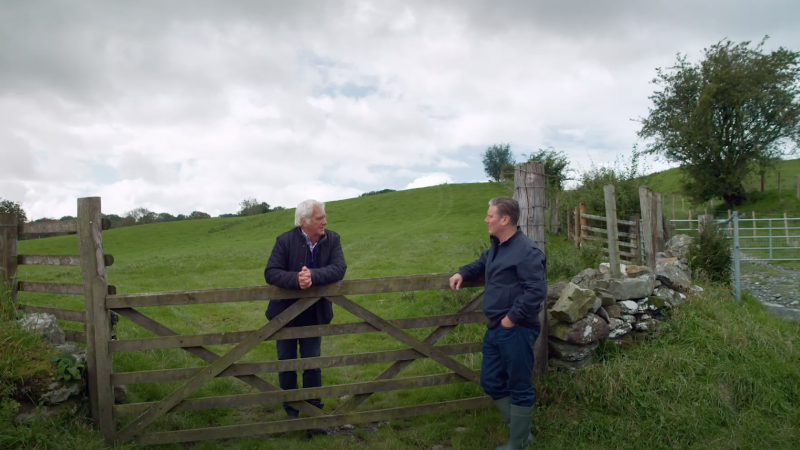
After last week’s landmark Budget, a debate is heating up on the reforms to inheritance tax. As expected, some of those seeing their tax breaks limited are making their grievances known. Yet, many of the grievances are based on myths about the tax breaks and who will be affected. At the same time, a few loud voices should not be prioritised over the concerns of the wider British public. A reality check is in order.
Myth 1: Nobody wanted inheritance tax reform
While objections from some owners of business and farm assets may be loud, we must also listen to the voice and concerns of the wider public. The British public recognises that the government needs to raise taxes to ease pressure on public services. They ask, however, that taxes are raised fairly – that those with the broadest shoulders contribute the most and that the wealthy cannot escape the tax by hiring advisers. Last week’s changes to inheritance tax, which was ripe for reform, will do just that.
As almost half of inheritance tax is paid by the wealthiest 1%, the changes will mean only those with broad shoulders will bear a heavier burden. But nevertheless, because of various tax breaks, the very wealthiest estates have often paid lower rates than others – something which the public are rightly frustrated by. The Chancellor’s approach to limit tax breaks will help change that, delivering on the public’s wishes.
You don’t need to trust me on this. The public themselves have expressed their support for this approach. In our polling, half of Brits expressed support for limiting the inheritance tax reliefs for larger businesses, with just 15% disagreeing. Similar proportions said that the reform would make inheritance tax ‘fairer for working people’.
Myth 2: The reforms will harm many farms and businesses
While the voices of those affected by the reforms are loud, there are not many of them. The limits placed on tax breaks for businesses or farms are likely to only affect up to around 500 estates per year each, and potentially much fewer than this. The National Farmers Union have contested these numbers (which come from the Treasury), but their figures are flawed (see here for details).
SIGN UP: Get the best daily roundup and analysis of Labour news and comment in our newsletter
So few farms or businesses will be affected because generous tax breaks remain available. Even estates with £3m of business or farm assets may still pay no inheritance tax at all.
Myth 3: The reforms will mainly harm family-run businesses and farms
While there are concerns about hurting family-run farms, the evidence suggests that most beneficiaries of the tax break were landowners rather than farmers themselves. The same applies to the tax break for businesses, as only a quarter of claimants managed the business in the five years prior to death.
Myth 4: The reforms will mean ‘the death of entrepreneurialism’
Concerns that the reforms will destroy entrepreneurialism are overblown, as the UK still offers more generous relief for businesses than many peer countries. Even after the Budget, our relief remains much more generous than the entrepreneurial South Korea, for example. No evidence suggests people avoid starting a business due to concerns about future inheritance tax.
Myth 5: There was no need to reduce the tax break for farms
It is understandable that the Chancellor reformed the tax relief for businesses and farms at the same time. If no action was taken on tax breaks for farms, Britain’s wealthiest estates could simply shift their money into farmland. This would not only allow the well-advised to keep their tax advantage over other households, it would reduce the revenue raised for public services. This is not what the public wants, and it could even be bad for farmers. For the 46% of farmers who rent their land, keeping the tax break could drive up the value of the land, and therefore their rents.
A more inclusive debate is needed
It may be easy to only listen to the few loud voices with a platform, but it’s not how we should design government policy. We need to listen more closely to what the wider public thinks. We at Demos have done this through extensive deliberation with the public, in which people closely consider the pros and cons of inheritance tax reforms. And as our research outlines, while there is still room for improvement to build a broadly supported inheritance tax, last week’s changes were a promising step forward.
For more from LabourList, follow us on Threads, Bluesky, X, Facebook, Instagram or WhatsApp.
- SHARE: If you have anything to share that we should be looking into or publishing about this story – or any other topic involving Labour– contact us (strictly anonymously if you wish) at [email protected].
- SUBSCRIBE: Sign up to LabourList’s morning email here for the best briefing on everything Labour, every weekday morning.
- DONATE: If you value our work, please donate to become one of our supporters here and help sustain and expand our coverage.
- PARTNER: If you or your organisation might be interested in partnering with us on sponsored events or content, email [email protected].




More from LabourList
Antonia Romeo appointed to lead civil service as new Cabinet Secretary
‘If Labour is serious about upskilling Britain, it must mobilise local businesses’
Stella Tsantekidou column: ‘What are we to make of the Labour Together scandal?’